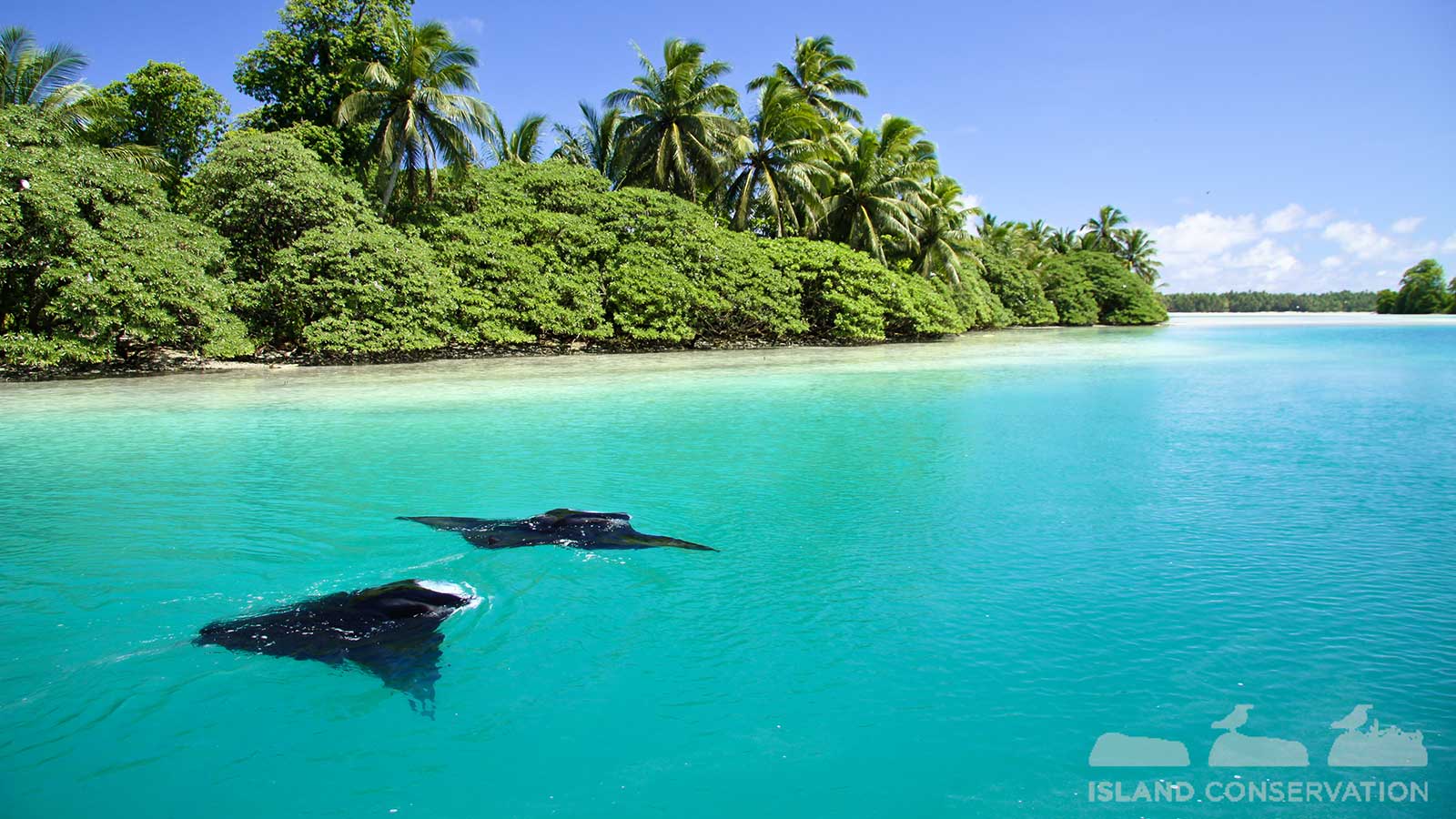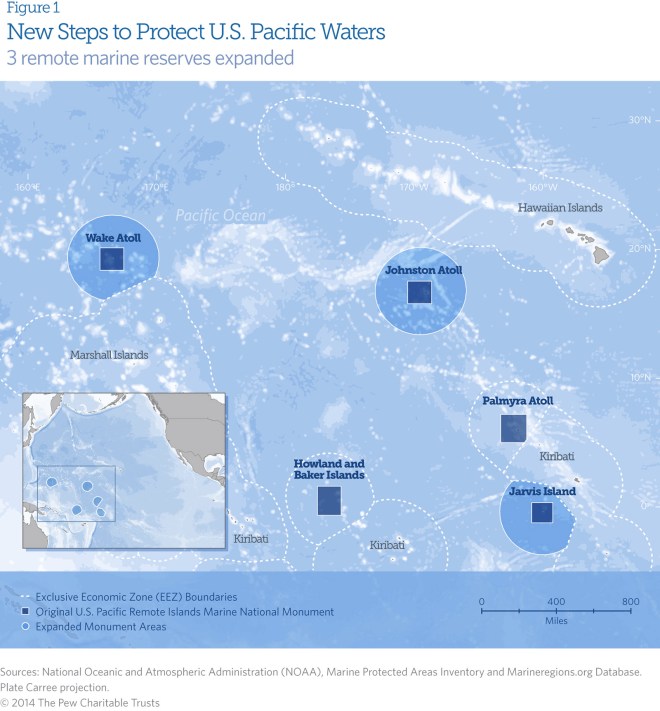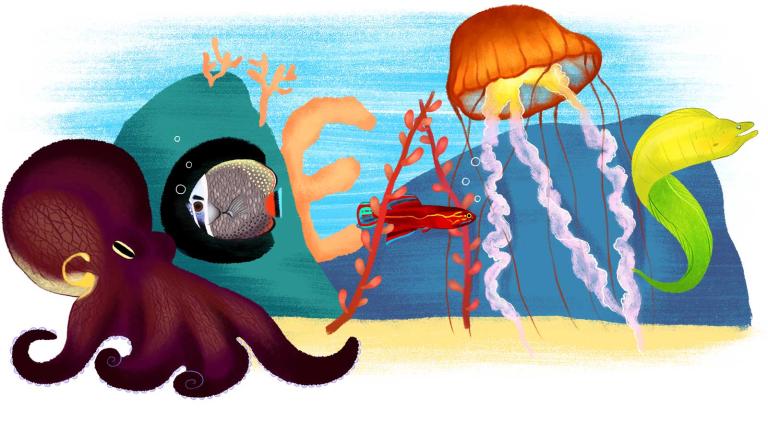It’s official — that massively and unprecedentedly HUGE marine reserve Obama announced back in June is now a reality. The announcement came on Thursday morning that 470,000 square miles of ocean around a couple of remote Pacific islands will be formally set aside as a national marine monument — aptly named the Pacific Remote Islands National Marine Monument.
Though smaller than the nearly 800,000 square miles included in the original expansion plan, this is still six times larger than the 87,000 square mile reserve originally established by George W. Bush. Or, more evocatively, twice the size of Texas. Yeah, TEXAS. That means you could drive for two days and not come across any deep-sea mining or commercial fishing in these productive marine habitats — especially no more tuna fishing.
Pacific bluefin tuna are struggling, thanks to their delicious, delicious flesh and a lack of strong international fishing agreements. By setting aside so much ocean as tuna timeout areas, the U.S. may actually stand a chance of saving some fish for the future. Though tuna are highly mobile species, they have been known to flock to this area during warmer seasons, in search of food. With El Niño predicted to double in frequency thanks to climate change, these islands may become a semi-permanent vacation home for harried bluefin.
Of course, fisherman have been grumbling about the move, saying it will threaten their livelihoods. Fish caught around these remote islands total around 4 percent of the U.S. annual tuna haul — not-nothing, but also not a whopper. On the other hand, putting up a fence to commercial fishing vessels also means protecting the vibrant ecosystems around these islands and ‘seamounts,’ underwater mountains, which are home to ancient corals, manta rays, sharks, sea turtles, and other charismatic ocean animals.
So the final version of the plan attempts to strike a compromise, leaving fishermen with access to the waters around half of the islands and atolls and protecting the other half. The Pacific Ocean is a big place, and even with this new double-Texas wide reserve, only about 2 percent of it is protected at the moment. So I’d like to officially kick off the spirit of friendly competition and say to all you other wannabe coastal countries: NYAH NYAH! My marine protected area is bigger than yours!




